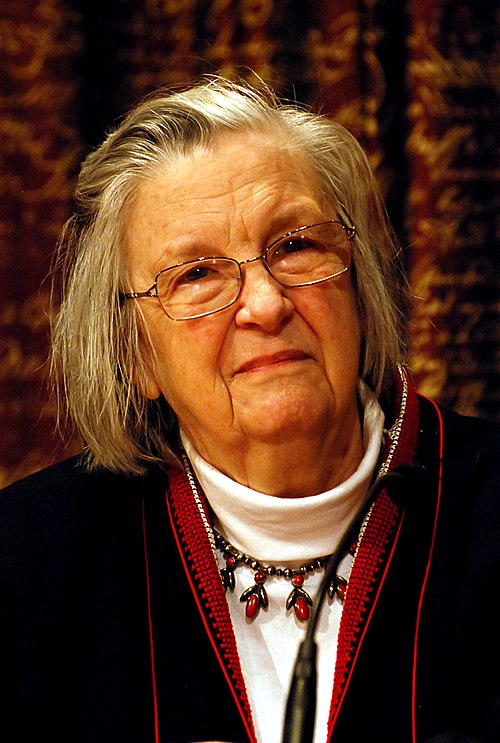The Jews | Elinor Ostrom: The First Woman to Win the Nobel Prize in Economics
She was the first woman to win the Nobel Prize in Economics—revolutionizing how communities manage shared resources through cooperation, not control.

In 2009, a woman in her seventies walked modestly onto the stage in Stockholm, looking almost surprised by the grand ceremony held in her honor. This was the first time a woman had ever won the Nobel Prize in Economics, and so Professor Elinor Ostrom entered global history. But what truly made her victory groundbreaking wasn’t her gender—it was the revolutionary ideas she brought with her: a whole new way of understanding community, ownership, and human cooperation.
What do fishermen in Indonesia, farmers in Nepal, and water companies in the U.S. have in common?
Ostrom dedicated her life to studying the management of shared resources—water, forests, and grazing lands. What preoccupied her was what economists call “the tragedy of the commons”: the idea that if a resource belongs to everyone, it will eventually be depleted because each individual exploits it for personal gain.
But Ostrom went out into the field and discovered something very different. In various communities around the world, from Southeast Asian fishermen to urban neighborhoods in the U.S., she found that local, decentralized systems managed shared resources for years—even generations—in a stable and just way. Not thanks to government laws, and not because of free markets—but through internal rules, mutual trust, and a sense of shared responsibility. In other words: people can cooperate—even without top-down enforcement.
No longer “the state or the market”
For decades, Western economic thought was stuck in a binary: either the government runs things, or the private market solves the problem. Ostrom offered a third path—self-governing communities that create independent systems of rules and shared governance. In doing so, she shattered conventional wisdom and opened the door to a new kind of research—one that sees people not just as self-interested individuals, but as social beings. A worldview deeply aligned with Jewish tradition: community, reciprocity, and a social covenant.
A humble childhood, Jewish roots
Elinor was born in Los Angeles in 1933, the only child of a Jewish father and a Protestant mother. Her mother was a musician, her father a set designer. Ostrom described herself as “a poor child” growing up during the Great Depression. Her parents were artists, and she faced many personal and financial hardships. She began her academic journey studying political science—not economics. Though she started her career at the prestigious University of California, a dispute with the university’s governmental research bureau—sparked by her husband, Professor Vincent Ostrom, who called for decentralized governance in metropolitan areas—led the couple to leave. They joined the faculty at Indiana University, where they built their professional lives. Perhaps it was precisely because she didn’t insist on being in the spotlight that she managed to see what others missed: that the real world isn’t governed only by theoretical models, but by human relationships, traditions, and belonging.
A Jewish message of partnership
Ostrom was not a religious Jew, but the concepts at the heart of her worldview—covenant, community, care for the vulnerable, and protection of natural resources—are deeply rooted in Jewish tradition. The idea of “the commons,” or hefker, is familiar from the Bible. And the mechanisms of shmita and yovel—sabbatical and jubilee years—designed to ensure just and equal social order, resemble the very models Ostrom described. In this way, her contribution is not only economic—but spiritual: a reminder that what sustains communities over time is not only self-interest, but trust.
A Nobel—and what came after
Thirteen years ago today, on June 12, 2012, Elinor Ostrom passed away just three years after receiving the Nobel Prize. But her work became a cornerstone in the fields of institutional economics, political science, ecology, and the growing discipline of “co-governance.” In a world facing environmental crises, resource shortages, and social fragmentation her approach is more vital than ever.
A Jewish message to the world
Ostrom showed the world what Jews have known for thousands of years: that building a sustainable society requires mutual responsibility, dialogue, and agreed-upon norms—not just laws and not just markets. That it’s precisely within community - with all its complexity - that resilient, intelligent solutions can emerge. Perhaps that’s why it was Elinor a non-conventional Jew—who became such a key figure in a generation searching for balance between individualism and the collective.
In previous chapters of this series, we explored the stories of Barry Goldwater, Wilhelm Steinitz, and Jack Steinberger—three Jews who left a lasting mark on politics, physics, and modern identity.